Your cart is currently empty!
Water Testing Kits
$17.45
Water testing kits for drinking water are convenient tools that allow individuals to assess the quality and safety of their tap or well water. These kits typically include testing materials such as strips or reagents to detect the presence and concentration of contaminants like chlorine, lead, pesticides, bacteria, and other potentially harmful substances. Some kits may also provide pH testing materials to measure the acidity or alkalinity of the water. While water testing kits can provide valuable insights, it’s important to note that professional laboratory testing may be necessary for comprehensive and accurate results, particularly when serious contamination is suspected.
Testing for: Alkalinity | PH | Cyanuric Acid | Carbonate | Hardness | Total Chlorine | Free Chlorine | Bromine | Nitrate | Iron | Chromium | Lead | Copper | Mercury | Fluoride
22 in stock (can be backordered)
- Description
- Additional information
- What does it test for?
- Q&A
- Advantages and Disadvantages
- Applications
- Downloads
- Reviews (0)
Description
Water testing kits for drinking water are designed to measure the quality and safety of the water you consume. These kits typically include various testing strips or reagents that can detect levels of contaminants. Contaminants such as chlorine, lead, pesticides, bacteria, and other harmful substances. Some kits also include pH testing materials to determine the acidity or alkalinity of the water.
When using a water testing kit, you’ll typically follow the instructions provided to collect a sample of water and then use the testing materials to analyze the sample. The results will indicate the presence and concentration of various contaminants. This allows you to assess the overall safety of your drinking water.
It’s important to note that while water testing kits can provide valuable information. However, they may not be as comprehensive or accurate as professional laboratory testing. If you have concerns about the quality of your drinking water, particularly if you suspect serious contamination, it’s advisable to seek professional testing services to ensure the accuracy of the results.
Water testing kits can be purchased from hardware stores, home improvement centers, or online retailers. When selecting a kit, consider the specific contaminants you want to test for and ensure that the kit you choose is capable of detecting those substances. Some kits are designed for general testing. Other types of tests may be tailored to specific concerns such as lead contamination or bacterial presence.
After the Tests
After conducting the tests, it’s important to carefully interpret the results. If you find any concerning levels of contaminants, it’s advisable to take appropriate action to address the issue. This may involve installing water filtration or purification systems. It is important to consult with a water quality professional or contact your local water utility for further guidance.
Regular testing of your drinking water is a proactive way to ensure that it meets safety standards and is suitable for consumption.
In addition to purchasing water testing kits, some local health or environmental agencies may also offer free tests. If not free, it will be a low-cost testing service for certain contaminants. These organizations can provide valuable guidance on how to collect samples and interpret the results, giving you peace of mind about the safety of your drinking water.
It’s worth noting that water quality can vary depending on factors such as location, infrastructure, and environmental conditions. Regular testing can help you stay informed about any changes in water quality and take appropriate measures to safeguard. This will safeguard your health and well-being.
If you have any other questions about water testing or related topics, feel free to ask, and I’ll be happy to assist you further.
Do you need Filtration?
Additional information
| Weight | 0.25 lbs |
|---|---|
| Dimensions | 8 × 8 × 8 in |
| Tests for | Alkalinity, PH, Cyanuric Acid, Carbonate, Hardness, Total Chlorine, Free Chlorine, Bromine, Nitrate, Iron, Chromium, Lead, Copper, Mercury, Fluoride |
| Included in Package | Eye Dropper, Strips |
What does it test for?
A water test kit for drinking water typically tests for a range of contaminants and water quality parameters, including:
- Bacteria: Some water testing kits include materials to detect the presence of coliform bacteria, which can indicate potential fecal contamination.
- Lead: Detection of lead is crucial, as exposure to this heavy metal can have serious health effects, especially in children.
- Pesticides and Nitrates: These kits may test for the presence of agricultural or industrial chemicals that can leach into groundwater.
- Chlorine: Chlorine levels are important to monitor, as excessive chlorine can affect taste and odor, and prolonged exposure can have health implications.
- pH Levels: Testing for pH helps determine the acidity or alkalinity of the water, which can impact its taste and corrosiveness.
- Hardness: Some kits measure water hardness, which indicates the concentration of minerals like calcium and magnesium.
- Iron: Iron testing is important for those with well water, as high levels of iron can affect taste and also lead to staining in plumbing fixtures.
It’s important to note that the specific items tested can vary depending on the type and brand of the water test kit.
Q&A
Q: Why should I test my drinking water?
A: Testing your drinking water can help you identify potential contaminants and ensure that it meets safety standards for consumption. Regular testing provides peace of mind and helps you take appropriate measures if any issues are detected.
Q: What contaminants can water testing kits detect?
A: Water testing kits can detect a range of contaminants, including bacteria, lead, pesticides, nitrates, chlorine, pH levels, and more. Specific kits may target certain contaminants, so it’s important to select a kit that aligns with your concerns.
Q: How often should I test my drinking water?
A: The frequency of testing depends on various factors such as your location, water source, and any existing water quality issues. As a general guideline, testing at least once a year is recommended. However, testing following any changes in taste, odor, or color is also advisable.
Q: Can water testing kits provide comprehensive results?
A: While water testing kits can detect many common contaminants, they may not offer the same level of comprehensiveness and accuracy as professional laboratory testing. If you have specific concerns or suspect serious contamination, professional testing may be necessary.
Q: What should I do if my water test results indicate contamination?
A: If your results show concerning levels of contaminants, it’s important to take action to address the issue. This may involve installing water filtration or purification systems, seeking professional guidance, or contacting your local water utility for further assistance.
Q: Where can I purchase water testing kits?
A: Water testing kits are available for purchase at hardware stores, home improvement centers, and online retailers. Some local health or environmental agencies may also offer free or low-cost testing services for certain contaminants.
Advantages and Disadvantages
Here are some advantages and disadvantages of using a water testing kit for drinking water:
Advantages:
- Convenience: Water testing kits provide a convenient way to initially assess the quality of your drinking water without the need for professional assistance.
- Affordability: Testing your water with a kit is generally more cost-effective than frequent professional laboratory testing, especially for routine assessments.
- Quick results: Water testing kits typically yield results within a short timeframe, allowing you to promptly identify any potential issues with your water.
Disadvantages:
- Limited scope: While water testing kits can detect common contaminants, they may not offer the same breadth of analysis as professional laboratory testing, potentially missing certain contaminants or providing less accurate measurements.
- Interpretation challenges: Interpreting water test results accurately may be challenging for individuals without expertise in water quality, leading to potential misinterpretation of the data.
- Professional validation: In cases of serious contamination concerns, professional laboratory testing may be necessary to validate the results and provide a more comprehensive analysis of water quality.
Ultimately, water testing kits can be a useful initial tool for assessing drinking water quality, but for more detailed and precise analysis, professional laboratory testing may be required. If you have further questions on this topic, feel free to ask!
Applications
Downloads
Only logged in customers who have purchased this product may leave a review.
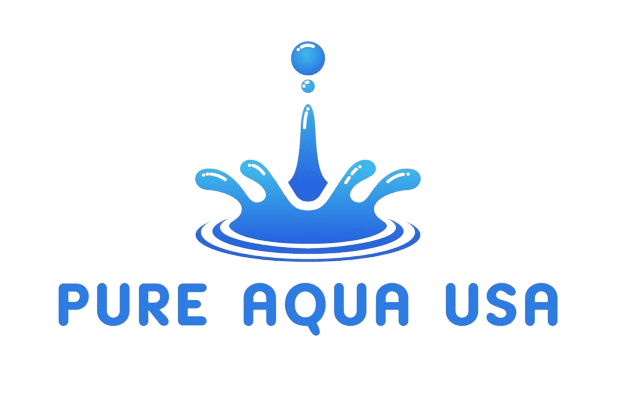





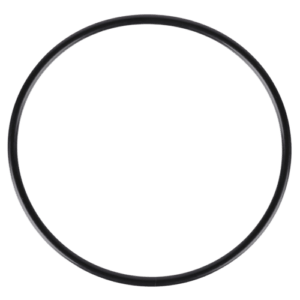
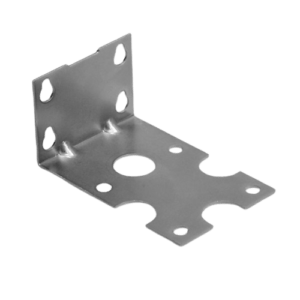
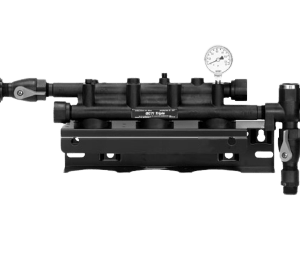
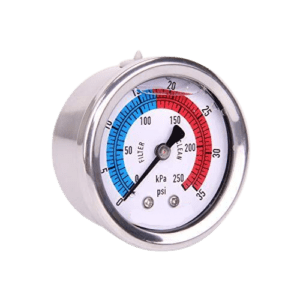
Reviews
There are no reviews yet.